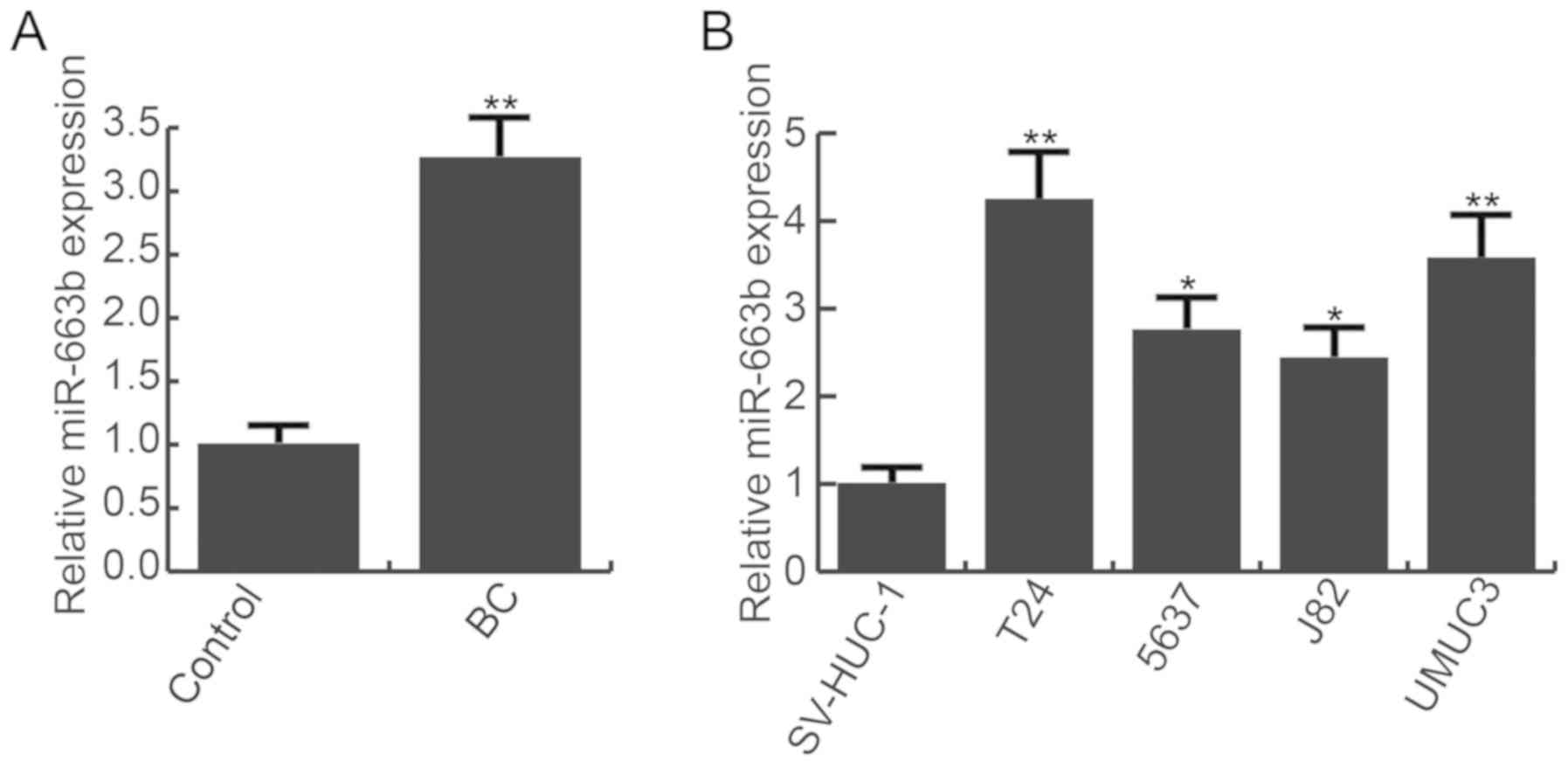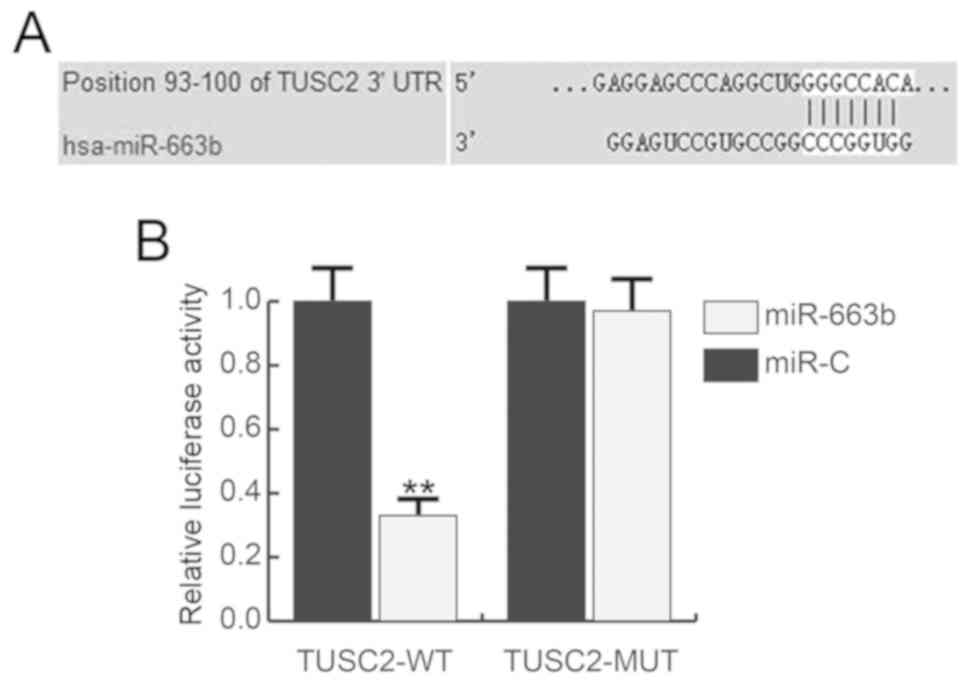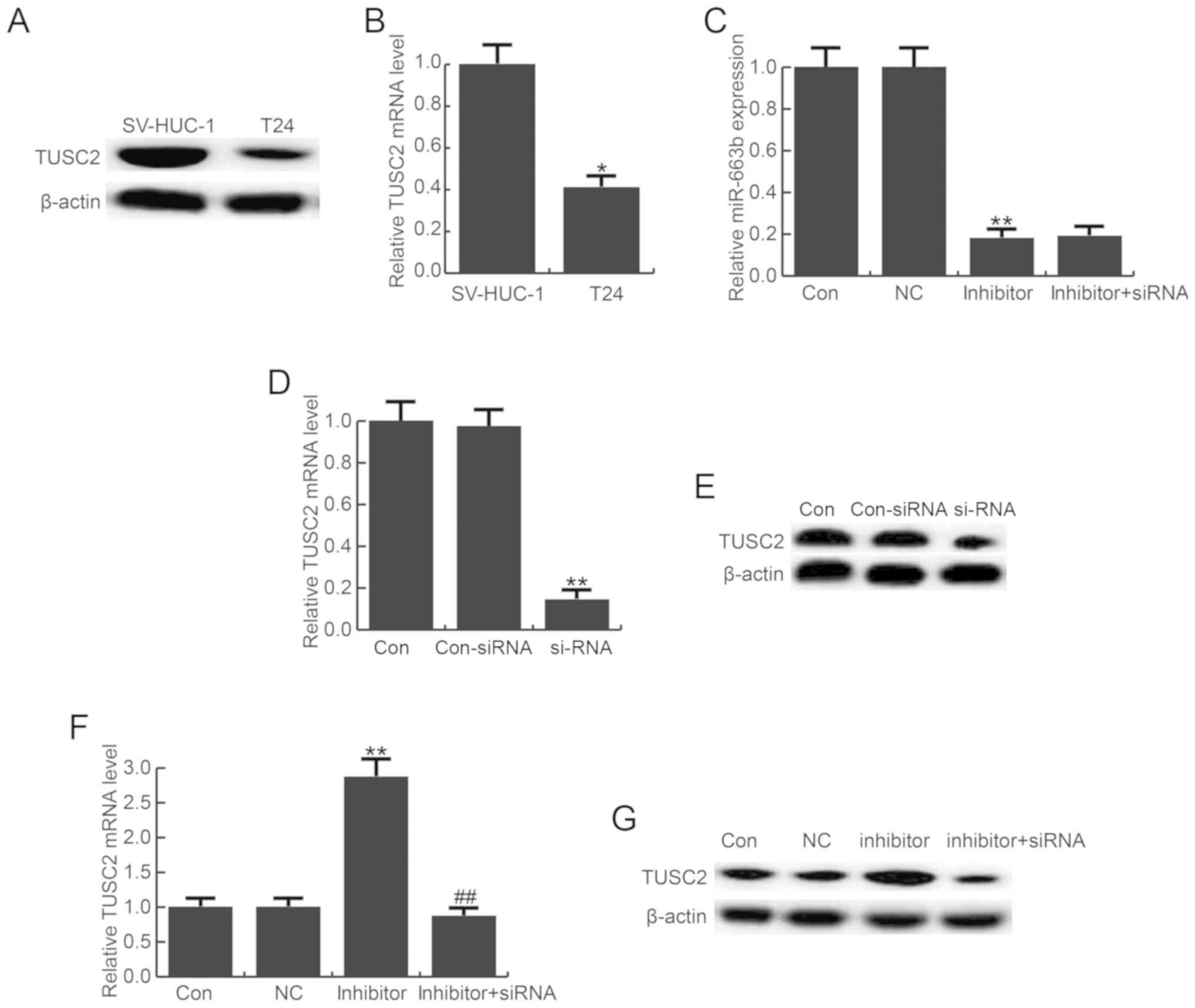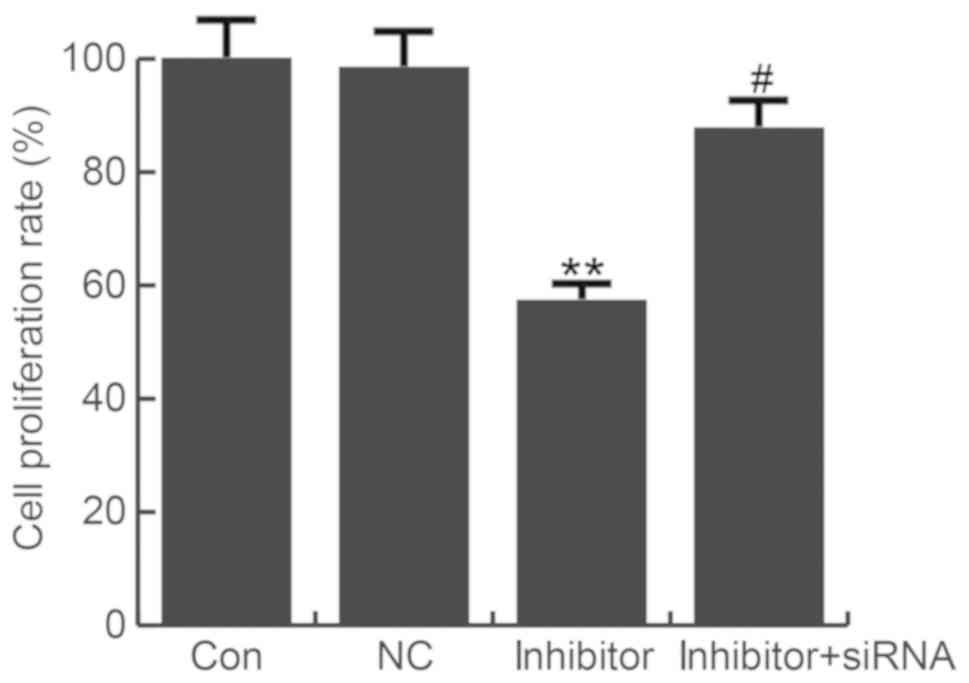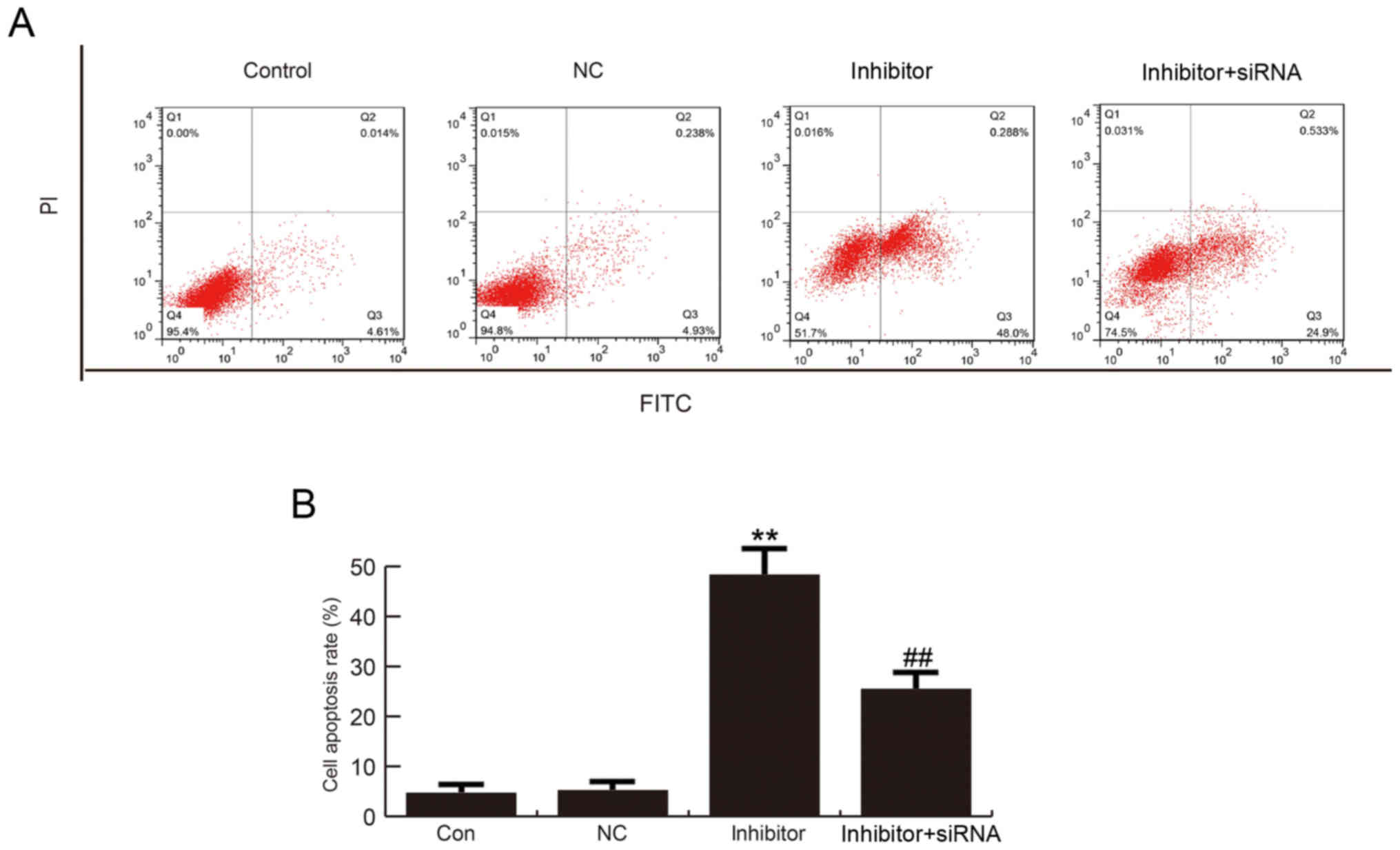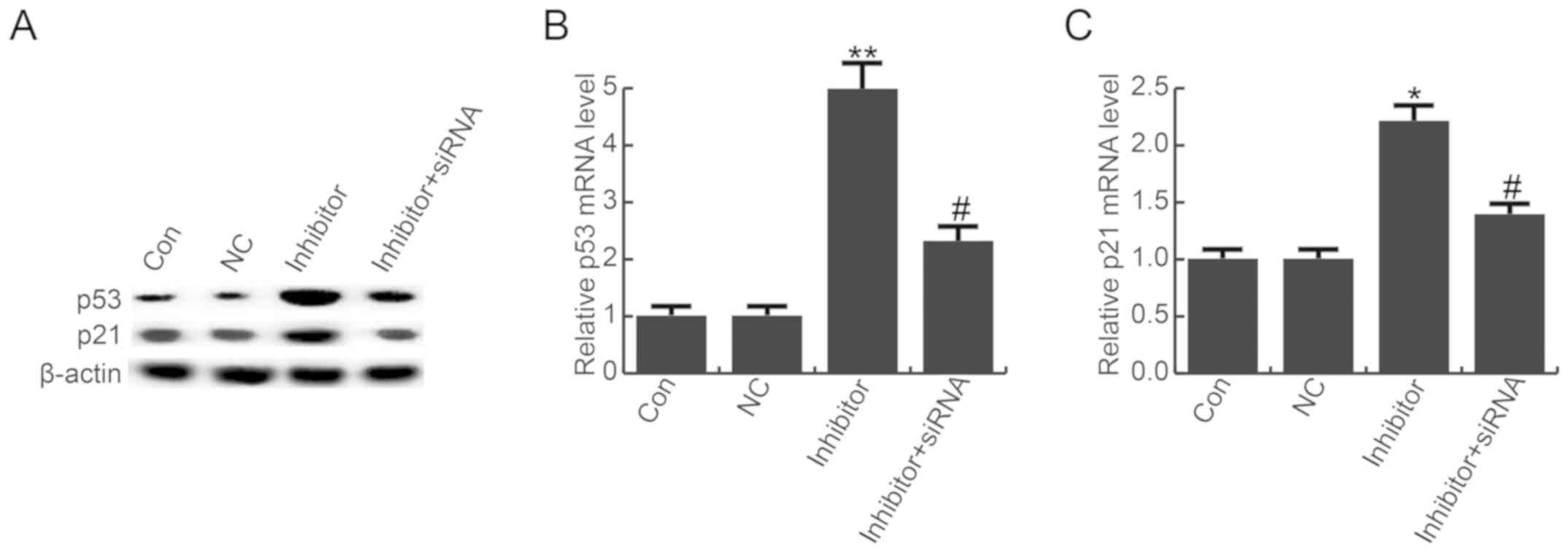|
1
|
Swarup V and Rajeswari MR: Circulating
(cell-free) nucleic acids-a promising, non-invasive tool for early
detection of several human diseases. FEBS Lett. 581:795–799. 2007.
View Article : Google Scholar : PubMed/NCBI
|
|
2
|
Antoni S, Ferlay J, Soerjomataram I, Znaor
A, Jemal A and Bray F: Bladder cancer incidence and mortality: A
global overview and recent trends. Eur Urol. 71:96–108. 2017.
View Article : Google Scholar : PubMed/NCBI
|
|
3
|
Moyer VA and U.S. Preventive Services Task
Force: Screening for bladder cancer: U.S. Preventive Services Task
Force recommendation statement. Ann Intern Med. 155:246–251. 2011.
View Article : Google Scholar : PubMed/NCBI
|
|
4
|
Griffiths TR and Action on Bladder Cancer:
Current perspectives in bladder cancer management. Int J Clin
Pract. 67:435–448. 2013. View Article : Google Scholar : PubMed/NCBI
|
|
5
|
Smith AB, Crowell K, Woods ME, Wallen EM,
Pruthi RS, Nielsen ME and Lee CT: Functional outcomes following
radical cystectomy in women with bladder cancer: A systematic
review. Eur Urol Focus. 3:136–143. 2017. View Article : Google Scholar : PubMed/NCBI
|
|
6
|
Schulz GB, Grimm T, Buchner A, Jokisch F,
Grabbert M, Schneevoigt BS, Kretschmer A, Stief CG and Karl A:
Prognostic value of the preoperative platelet-to-leukocyte ratio
for oncologic outcomes in patients undergoing radical cystectomy
for bladder cancer. Clin Genitourin Cancer. 15:e915–e921. 2017.
View Article : Google Scholar : PubMed/NCBI
|
|
7
|
Coleman EA and Boult C; American
Geriatrics Society Health Care Systems Committee, : Improving the
quality of transitional care for persons with complex care need. J
Am Geriatr Soc. 51:556–557. 2003. View Article : Google Scholar : PubMed/NCBI
|
|
8
|
Ambros V: microRNAs: Tiny regulators with
great potential. Cell. 107:823–826. 2001. View Article : Google Scholar : PubMed/NCBI
|
|
9
|
Bartel DP: MicroRNAs: Genomics,
biogenesis, mechanism, and function. Cell. 116:281–297. 2004.
View Article : Google Scholar : PubMed/NCBI
|
|
10
|
Valencia-Sanchez MA, Liu J, Hannon GJ and
Parker R: Control of translation and mRNA degradation by miRNAs and
siRNAs. Genes Dev. 20:515–524. 2006. View Article : Google Scholar : PubMed/NCBI
|
|
11
|
Croce CM: Causes and consequences of
microRNA dysregulation in cancer. Nat Rev Genet. 10:704–714. 2009.
View Article : Google Scholar : PubMed/NCBI
|
|
12
|
Catto JW, Alcaraz A, Bjartell AS, De Vere
White R, Evans CP, Fussel S, Hamdy FC, Kallioniemi O, Mengual L,
Schlomm T and Visakorpi T: MicroRNA in prostate, bladder, and
kidney cancer: A systematic review. Eur Urol. 59:671–681. 2011.
View Article : Google Scholar : PubMed/NCBI
|
|
13
|
Shi Z, Wei Q, Zhang M and She J: MicroRNAs
in bladder cancer: Expression profiles, biological functions,
regulation, and clinical implications. Crit Rev Eukaryot Gene Expr.
24:55–75. 2014. View Article : Google Scholar : PubMed/NCBI
|
|
14
|
Gottardo F, Liu CG, Ferracin M, Calin GA,
Fassan M, Bassi P, Sevignani C, Byrne D, Negrini M, Pagano F, et
al: Micro-RNA profiling in kidney and bladder cancers. Urol Oncol.
25:387–392. 2007. View Article : Google Scholar : PubMed/NCBI
|
|
15
|
Du M, Shi D, Yuan L, Li P, Chu H, Qin C,
Yin C, Zhang Z and Wang M: Circulating miR-497 and miR-663b in
plasma are potential novel biomarkers for bladder cancer. Sci Rep.
5:104372015. View Article : Google Scholar : PubMed/NCBI
|
|
16
|
Xin J, Zhang XK, Xin DY, Li XF, Sun DK, Ma
YY and Tian LQ: FUS1 acts as a tumor-suppressor gene by
upregulating miR-197 in human glioblastoma. Oncol Rep. 34:868–876.
2015. View Article : Google Scholar : PubMed/NCBI
|
|
17
|
Uzhachenko R, Shanker A, Yarbrough WG and
Ivanova AV: Mitochondria, calcium, and tumor suppressor Fus1: At
the crossroad of cancer, inflammation, and autoimmunity.
Oncotarget. 6:20754–20772. 2015. View Article : Google Scholar : PubMed/NCBI
|
|
18
|
Li L, Yu C, Ren J, Ye S, Ou W, Wang Y,
Yang W, Zhong G, Chen X, Shi H, et al: Synergistic effects of
eukaryotic coexpression plasmid carrying LKB1 and FUS1 genes on
lung cancer in vitro and in vivo. J Cancer Res Clin Oncol.
140:895–907. 2014. View Article : Google Scholar : PubMed/NCBI
|
|
19
|
Uzhachenko R, Ivanov SV, Yarbrough WG,
Shanker A, Medzhitov R and Ivanova AV: Fus1/Tusc2 is a novel
regulator of mitochondrial calcium handling, Ca2+-coupled
mitochondrial processes, and Ca2+-dependent NFAT and NF-κB pathways
in CD4+ T cells. Antioxid Redox Signal. 20:1533–1547. 2014.
View Article : Google Scholar : PubMed/NCBI
|
|
20
|
Lin J, Sun T, Ji L, Deng W, Roth J, Minna
J and Arlinghaus R: Oncogenic activation of c-Abl in non-small cell
lung cancer cells lacking FUS1 expression: Inhibition of c-Abl by
the tumor suppressor gene product Fus1. Oncogene. 26:6989–6996.
2007. View Article : Google Scholar : PubMed/NCBI
|
|
21
|
Ivanova AV, Ivanov SV, Prudkin L, Nonaka
D, Liu Z, Tsao A, Wistuba I, Roth J and Pass HI: Mechanisms of
FUS1/TUSC2 deficiency in mesothelioma and its tumorigenic
transcriptional effects. Mol Cancer. 8:912009. View Article : Google Scholar : PubMed/NCBI
|
|
22
|
Rimkus T, Sirkisoon S, Harrison A and Lo
HW: Tumor suppressor candidate 2 (TUSC2, FUS-1) and human cancers.
Discov Med. 23:325–330. 2017.PubMed/NCBI
|
|
23
|
Livak KJ and Schmittgen TD: Analysis of
relative gene expression data using real-time quantitative PCR and
the 2(-Delta Delta C(T)) method. Methods. 25:402–408. 2001.
View Article : Google Scholar : PubMed/NCBI
|
|
24
|
Shu Y, Ye W, Gu YL and Sun P: Blockade of
miR-663b inhibits cell proliferation and induces apoptosis in
osteosarcoma via regulating TP73 expression. Bratisl Lek Listy.
119:41–46. 2018.PubMed/NCBI
|
|
25
|
Rogers K and Chen X: Biogenesis, turnover,
and mode of action of plant microRNAs. Plant Cell. 25:2383–2399.
2013. View Article : Google Scholar : PubMed/NCBI
|
|
26
|
Cho WC: MicroRNAs: Potential biomarkers
for cancer diagnosis, prognosis and targets for therapy. Int J
Biochem Cell Biol. 42:1273–1281. 2010. View Article : Google Scholar : PubMed/NCBI
|
|
27
|
Yang X, Shi L, Yi C, Yang Y, Chang L and
Song D: MiR-210-3p inhibits the tumor growth and metastasis of
bladder cancer via targeting fibroblast growth factor receptor-like
1. Am J Cancer Res. 7:1738–1753. 2017.PubMed/NCBI
|
|
28
|
Luo H, Yang R, Li C, Tong Y, Fan L, Liu X
and Xu C: MicroRNA-139-5p inhibits bladder cancer proliferation and
self-renewal by targeting the Bmi1 oncogene. Tumour Biol.
39:10104283177184142017. View Article : Google Scholar : PubMed/NCBI
|
|
29
|
Wang W, Shen F and Wang C, Lu W, Wei J,
Shang A and Wang C: MiR-1-3p inhibits the proliferation and
invasion of bladder cancer cells by suppressing CCL2 expression.
Tumour Biol. 39:10104283176983832017.PubMed/NCBI
|
|
30
|
Wu D, Niu X, Tao J, Li P, Lu Q, Xu A, Chen
W and Wang Z: MicroRNA-379-5p plays a tumor-suppressive role in
human bladder cancer growth and metastasis by directly targeting
MDM2. Oncol Rep. 37:3502–3508. 2017. View Article : Google Scholar : PubMed/NCBI
|
|
31
|
Takai T, Yoshikawa Y, Inamoto T, Minami K,
Taniguchi K, Sugito N, Kuranaga Y, Shinohara H, Kumazaki M, Tsujino
T, et al: A novel combination rnai toward warburg effect by
replacement with miR-145 and silencing of PTBP1 induces apoptotic
cell death in bladder cancer cells. Int J Mol Sci. 18:E1792017.
View Article : Google Scholar : PubMed/NCBI
|
|
32
|
Meng J, Majidi M, Fang B, Ji L, Bekele BN,
Minna JD and Roth JA: The tumor suppressor gene TUSC2 (FUS1)
sensitizes NSCLC to the AKT inhibitor MK2206 in LKB1-dependent
manner. PLoS One. 8:e770672013. View Article : Google Scholar : PubMed/NCBI
|
|
33
|
da Costa Prando E, Cavalli LR and Rainho
CA: Evidence of epigenetic regulation of the tumor suppressor gene
cluster flanking RASSF1 in breast cancer cell lines. Epigenetics.
6:1413–1424. 2011. View Article : Google Scholar : PubMed/NCBI
|















